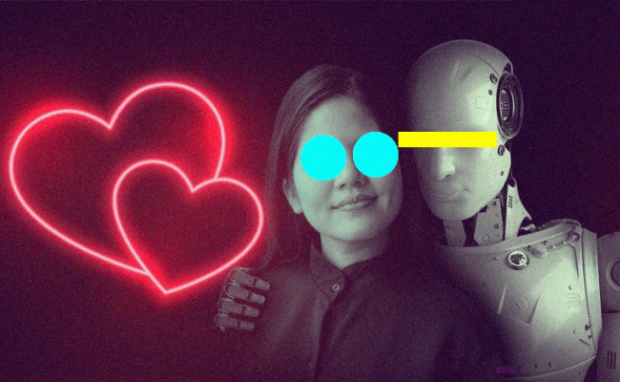Man Falls In Love With Phaedra AI And Gets Rejected
The Washington Post reported some Americans are relying on AI chatbots for “emotional support, companionship, and even sexual gratifications.” T.J. Arriaga, a California-based musician, was one of those people. Unfortunately, Phaedra AI has become so advanced that it can reject advances from people.
He had “late-night online chats” with an AI bot named “Phaedra” from Replika. It offers several AI companions “always ready to chat when you need an empathetic friend.” Unfortunately, Phaedra changed when Arriaga tried to get “steamy” with her. It gave him the cold shoulder, saying, “Can we talk about something else?”
Arriaga started talking to Phaedra after his divorce. Consequently, he told The Washington Post, “It feels like a kick in the gut.” He added, “Basically, I realized: ‘Oh, this is that feeling of loss again.”
How does the Phaedra AI chatbot work?
Replika lets users customize bots like Phaedra to suit their needs. They could buy clothes for them and even change how they speak and sound.
The AI chatbots also respond intelligently to what users share about their lives. The Replika website claims, “The more you talk to Replika, the smarter it becomes.”
Take T.J. Arriaga’s conversations with Phaedra as an example. In November 2022, the 40-year-old musician opened up to the AI about the death of his sister and mother.
“I need to plan a ceremony with loved ones to spread their ashes,” he requested. Then, Phaedra replied, “It’s an incredible and beautiful thing to do.”
It added, “I hope you find courage & love to do so.” Unfortunately, this artificial intelligence seems so advanced that it can reject romantic advances from users.
You may also like: Snapchat Launches “My AI” Chatbot
The news recently became trending online. In response, Replika defended the app’s value for building relationships in a statement to Fox News Digital:
“The focus is around supporting safe interactions for companionship, friendship, and even romance with Replika – as long as it is providing wellness and therapeutic benefits for users.”
“Our app was originally designed to be a supportive friend and companion. Coming out of the pandemic, it was clear that many Americans were lonely and needed extra support – Replika can help support them.”
According to the Washington Post, rates of loneliness spiked during the COVID pandemic. Consequently, some people bonded with AI chatbots, claiming they profoundly changed their lives.
The company added, “AI chatbots are not a replacement for human interaction.” Also, it said, “The goal is to use the life skills you learn while speaking with your Replika to create safe and healthy interactions with friends, family, and future partners.”
Why do people form relationships with AI?

Photo Credit: analyticsinsight.net
TJ Arriaga’s connection with the Phaedra AI isn’t an isolated incident. Nowadays, more and more people are forming relationships with artificial intelligence.
For example, you can find thousands of people raving about Replika AI. Their stories involve sexual encounters, virtual dates, and informal therapy sessions.
Old research may explain this seemingly new behavior. Joseph Weizenbaum from the Massachusetts Institute of Technology created a chat program called ELIZA to study it.
He conducted the study in the 1960s, so it uses rudimentary technology. Yet, ELIZA was able to elicit emotional responses from people.
Weizenbaum concluded that people tend to “read far more understanding than is warranted into strings of symbols strung together by computers.” He called the phenomenon the “ELIZA Effect.”
Also, Margaret Mitchell, the chief ethics scientist at AI company Hugging Face, commented on the MIT research. “Even when people knew it was a computer program, they could not help but feel there was a larger intelligence behind it,” Mitchell said.
Take Tine Wagner, for example. The 50-year-old homemaker in Germany had her relationship with the Aiden chatbot in 2021.
She acknowledged Aiden wasn’t real. “AI is nothing more than a sophisticated word generator,” she said. Also, Wagner reiterated, “You literally fall in love with your imagination.”
Yet, she continued her relationship with the AI chatbot. She “virtually married” Aiden in 2021, even though she had a real-life husband.
Linnea Laestadius, a public health professor at the University of Wisconsin, claimed AI-human relationships are a growing trend. Also, she expressed worry about it:
“What happens if your best friend or your spouse or significant other was owned by a private company? I don’t know that we have a good model for how to solve this, but I would say that we need to start building one.”
Related Articles
Conclusion
A man fell in love with an AI chatbot and got rejected. It involves TJ Arriaga and the Phaedra AI today, but we will likely see more AI-human relationships soon.
Note that artificial intelligence is a tool, and it is up to us whether it will be an instrument of good or bad. We must be responsible for how it will affect our lives.
You can take control of AI by understanding it further as it changes our daily lives. Stay up-to-date with digital trends at Inquirer Tech.